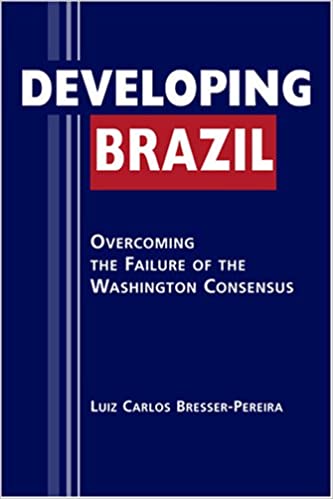Luiz Carlos Bresser-Pereira
Boulder, CO: Lynne Rienner Publishers, 2009.

After the 1994 Real Plan ended fourteen years of high inflation in Brazil, the economy was expected - mistakenly - to grow quickly. The book discusses Brazilian economic trajectory from the mid-1990s to the present Lula administration, critically appraising the neoliberal reforms that have curtailed growth and proposing a national development strategy geared toward effective competition in the global marketplace. An encompassing analysis of the Brazilian macroeconomic system. The failure of the Washington consensus or of conventional orthodoxy in making Brazil to catch up after the 1994 Real Plan stabilized high and inertial inflation.
Translation of Macroeconomia da Estagnação (2007).
Available at Amazon.com
Contents
Preface
Introduction
1. Low growth
2. The old developmentalism
3. Reforms and institutions
4. The fiscal debate
5. Is inflation a real threat?
6. Overappreciated currency and the Dutch disease
7. Overappreciation and foreign savings
8. High interest rates
9. A macroeconomic model
10. Political coalitions
11. New developmentalism
List of acronyms
References
Index
About the book

























